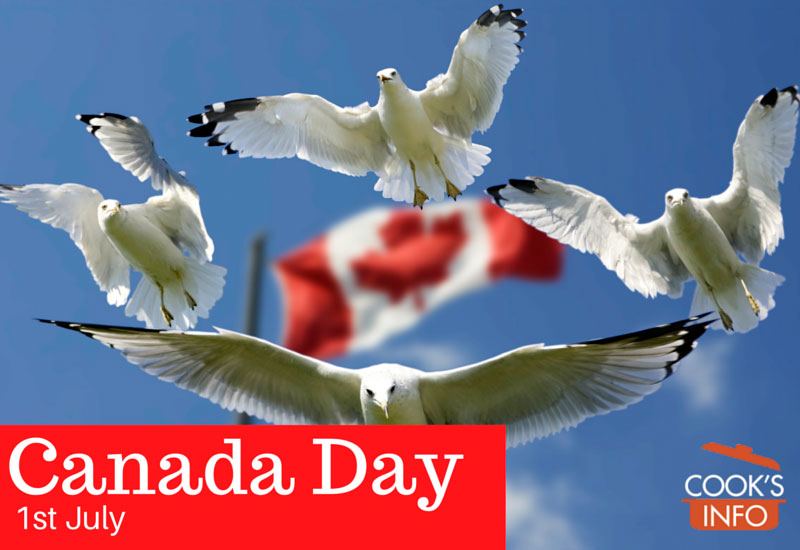
Canada Day. © Frank Winkler / pixabay.com / 2005 / CC0 1.0
Canada became a country on 1 July 1867.
Today is a day for picnics, barbeques, fireworks, concerts and outings.
Favourite foods on this day include doughnuts, Nanaimo bars and butter tarts, potato salads, hot dogs and hamburgers, along with cases of cold beer referred to as “two-fours.”
Sadly, many cases of food-poisoning occur on this day: make sure that all food is kept well-chilled until serving, and use an instant-read meat thermometer to ensure all grilled foods are properly cooked.
#CanadaDay
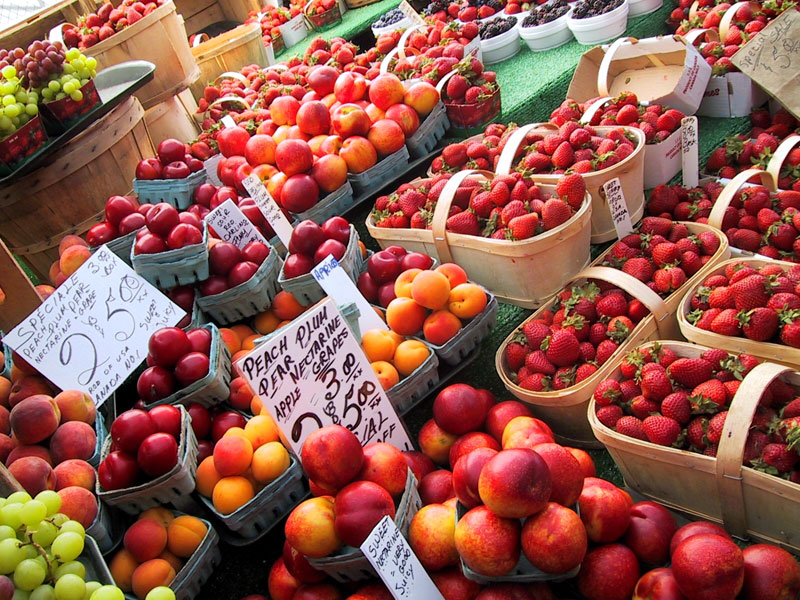
Byward Market, Ottawa. © noriko natsume / 2003 / freeimages.com
History Notes
Canada Day was formerly known as Dominion Day.
Dominion Day was first celebrated on 1 July 1868. It was made a public holiday in 1879 by “An Act to make the first day of July a Public Holiday by the name of Dominion Day”.
The term “Dominion” to describe Canada was suggested by Sir Samuel Leonard Tilley, based on Psalm 72:8: “He shall have dominion from sea to sea.” Like its American neighbour to the south, Canada had continental ambitions to expand to the Pacific Ocean, and the term “Dominion” reflected that.
The name was changed to Canada Day in 1982 by an Act of Parliament at a time when only 13 of 282 MPs (a legal quorum at the time was 20 MPs) were present in the Ottawa House of Commons, and effected between 4:00 and 4:05 pm; many today still think the name sounds forced, banal and artificial, and continue to call it Dominion Day.
In Newfoundland and Labrador, the day has been recognized since the First World War as Memorial Day. Red poppies are worn; Canada Day is observed in the evening. It commemorates the 1 July 1916 at 8:45 AM when the Royal Newfoundland Regiment was ordered to move forward at an area known as at Beaumont-Hamel as the Battle of the Somme began. Almost 700 out of the 800 men of the Regiment were killed in the first 30 minutes. Newfoundland purchased the site in 1925. It is now the largest memorial site on the Western front, as well as the best preserved, and is designated a National Historic Site of Canada.
In New Zealand, Dominion Day is observed on the 26th September, marking the day in 1907 when New Zealand was granted Dominion status in the British Empire.
English colonies in New England, including New York and New Jersey, were united as the “Dominion of New England” from 1686 to 1689.
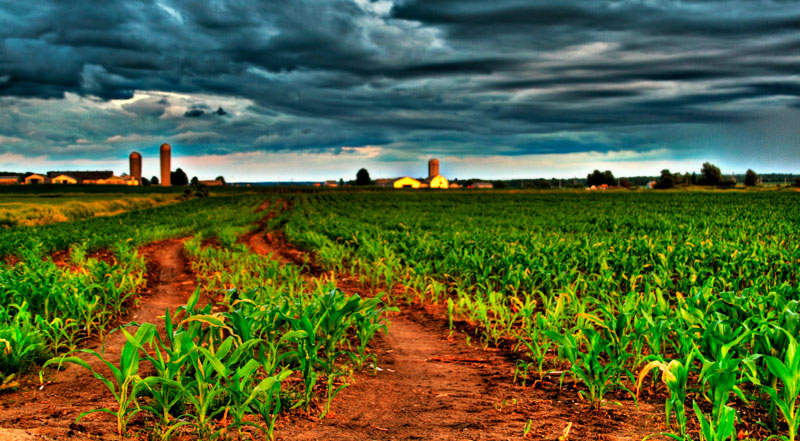
Corn field at sunset in Saint-Basile, Québec, Canada. © Maxime Perron Caissy / 2003 / freeimages.com
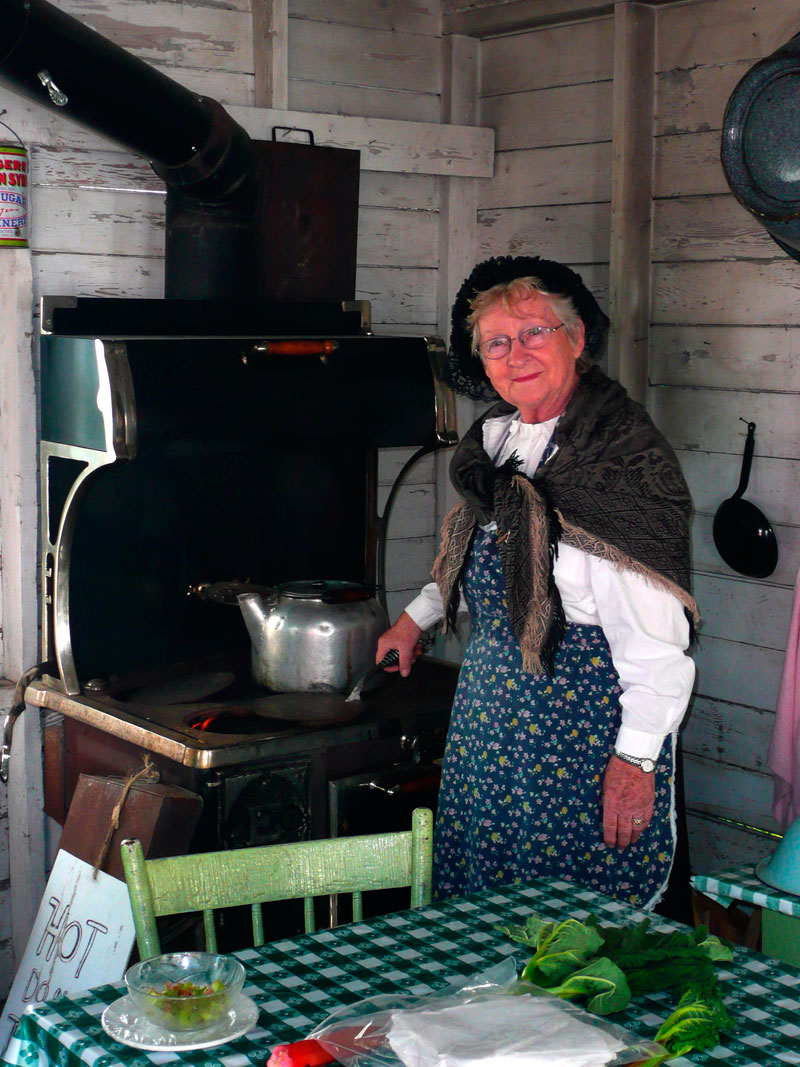
Mennonite kitchen in Steinbach, Manitoba. © Brigitte Werner / pixabay.com / 2009 / CC0 1.0
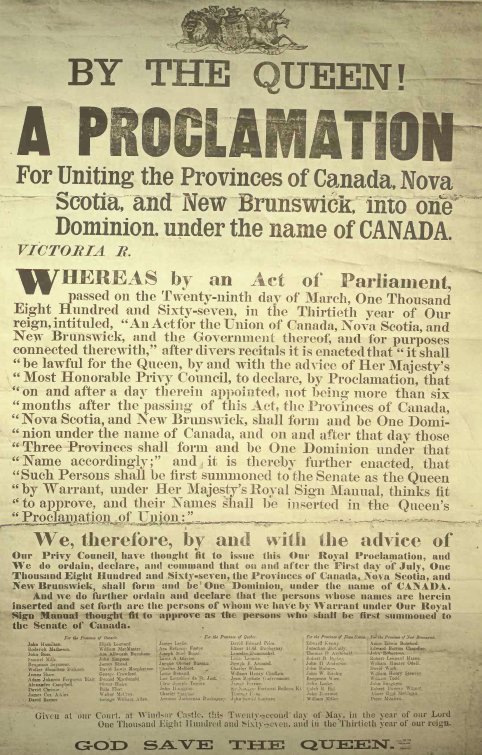
Canadian Confederation Proclamation 1867. © By Royal Proclamation [Public domain], via Wikimedia Commons

